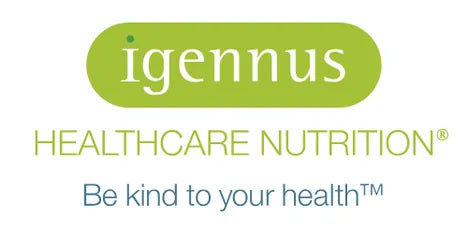Plant-based eating is a fast-growing trend in the UK and worldwide, driven by environmental concerns, ethical reasons and perceived health benefits. Either cutting out completely or reducing consumption of animal products does have certain health benefits, and many people feel great in the short term after changing their way of eating, but why do some become unwell after months or years on a plant-based diet? Deficiencies in vitamins, minerals and essential fatty acids may take years to produce symptoms. As these develop slowly and can be vague, diagnosis and supplementation are often delayed. For example, 50% of vegans and 7% of vegetarians are deficient in vitamin B12, and once B12 deficiency symptoms appear, damage can be irreversible.
Each cell of the body needs a constant supply of nutrients to perform optimally. The key is to carefully plan your diet to ensure you’re getting all your body needs to thrive, and to supplement with what you can’t obtain from your diet. In this 2 part series, we’ll focus on omega-3 in the first article, and look at vitamins and minerals in the second.
Long-chain omega-3, EPA & DHA, has proven benefits for heart, brain and eye health
The omega-3 and omega-6 fatty acids comprise two important families of polyunsaturated fatty acids. Although both are essential for health, fats in the omega-3 family tend to give rise to anti-inflammatory compounds and substances that positively influence the immune system, whereas an oversupply of omega-6 fatty acids drives inflammation in the body. The key to good health therefore, is to consume a generous amount of omega-3s and a small amount of omega-6s daily.
The short-chain omega-3s (alpha linoleic acid or ALA) and omega-6s (linolenic acid or LA) are found in commonly consumed plant foods. Rich sources of the sought-after ALA include seeds and nuts such as flax and chia seeds, walnuts and pecan nuts. While consumption of these short-chain omega-3s is encouraged for the health benefits they offer (such as minerals, phytonutrients, fibre and cholesterol-lowering ability), only a small percentage converts to the long-chain omega-3s docosahexaenoic acid (DHA) & eicosapentaenoic acid (EPA) which have proven benefits for heart, brain and eye health.
Omega-6s, which should be avoided in excess, are found in some healthy plant foods, such as nuts & seeds (e.g. peanuts, sunflower and sesame seeds) and wholegrains, but also in abundance in less healthy vegetable seed oils, processed & fried foods and commercially raised animal products.
A plant-based diet can reduce plasma levels of immune-boosting EPA, and brain and heart supporting DHA, by as much as 50%
The omega-3 and omega-6 families compete with each other for the same enzymes that convert short- to long-chain omegas. Until relatively recently, the natural human diet included a range of animal and marine products, plants, nuts & seeds such that the average omega-6 to omega-3 ratio was ~2:1. The standard Western diet now contains an abundance of omega-6s with a ratio of more like 15-20:1. This omega 6:3 imbalance, found in both vegans and omnivores, means even less short- to long-chain omega-3 conversion, leading to a 50% reduction in plasma levels of EPA & DHA for followers of a plant-based diet.
Introducing algae, the direct source of EPA & DHA for fish and people alike
There are two ways of accumulating enough long-chain omega-3s: eat a diet consisting of few omega-6s and loads of long-chain omega-3s from oily fish (impossible for almost everyone, let alone vegans and vegetarians), or take a DHA & EPA omega-3 supplement. While fish oil has been the traditional and most obvious choice, those wanting a vegan supplement were in the past limited to the short-chain omega-3 products such as flax seed oil (rather ineffective) and echium seed oil( containing both short-chain ALA and the EPA-precursor, SDA, it is somewhat more effective and still an add-on option for those wanting a plant-based supplement to boost, specifically, the EPA fraction). Fortunately, we can now source our EPA and DHA from the same place that fish do by taking advantage of algae oil supplements. Algae itself is actually the primary source of omega-3 in the marine food chain (not the fish that feed on them) and the only plant source of long-chain omega-3.
Early-generation algae oil contained DHA only, but the best algae oils on the UK market currently contain both EPA and DHA in a 1:2 ratio. The long-chain omega-3 DHA is involved in the structure and function of cell membranes and has proven benefits for heart, brain and eye health, whereas EPA is more involved in controlling inflammation and the immune system. It is therefore beneficial to choose an algae oil containing both EPA & DHA, not DHA alone.
Algae offers a sustainable, environmentally-friendly alternative
Algae oil is a great choice for the environmentally conscious – grown in closed systems on land, it leaves no footprint on the ocean ecosystem, and the oil is naturally free from contaminants such as heavy metals, PCBs and dioxins. Algae thrives in sunny, dry climates where farming may not be possible and consumes carbon dioxide, thereby reducing ‘greenhouse gas’. What’s more, the byproducts of algae oil production are used for nutritious animal feed. The world’s requirements for long-chain omega-3 cannot be met by fish alone, and with fish stocks under threat, algae offers a sustainable, environmentally sound alternative, not just for vegans but for all of us.
Algae oil is great for pregnancy, the developing brain, eye health and followers of a plant-based diet
Is algae oil as beneficial as fish oil? Gram for gram of EPA & DHA, yes. The algae oil currently available on the UK market is DHA-rich, containing a 2:1 ratio of DHA:EPA, whereas fish oil supplement consumers have a wider range of EPA & DHA concentrations to choose from. DHA-rich oil is ideal for pregnant & breastfeeding women, young children and those with eye conditions such as macular degeneration. An EPA-rich oil would be more suitable for those with certain chronic health conditions, including those with an inflammatory or immune component.
Igennus has recently launched a Vegan Omega-3 & Astaxanthin supplement, which is unique in that it provides both algae omega-3 and astaxanthin, nature’s most potent antioxidant. Containing Astapure® Astaxanthin complex, a natural vegan extract from the algae responsible for the pink-red pigmentation of wild salmon, crustaceans and flamingos that feed on them, in addition to astaxanthin it also contains a complex of beneficial carotenoids, including lutein and a trio of ‘xanthins. DHA is more easily oxidised than EPA, therefore when taking a DHA-rich omega supplement such as algae oil, it’s especially beneficial to take a product with a ‘built-in’ antioxidant. As well as those who can’t or don’t want to take fish oil, this product is ideal for pregnant women as the astaxanthin counteracts the naturally pro-oxidant, inflammatory pregnancy state.
How much omega-3 should one take?
While individual requirements vary and depend on diet, weight, activity level, age, gender & genetics, we recommend 600mg DHA & EPA daily for those in good health. Those with health issues may benefit from an increased dose. To take the guesswork out of supplementing, you can check your omega levels with the Opti-0-3 home blood spot test. It provides a breakdown of all the fatty acids in your cells, your omega-3 index, omega 6:3 ratio and the important AA:EPA ratio, and calculates your own daily omega-3 needs. It’s also a useful tool to monitor your response to supplementation.
Vegan Omega-3 & Astaxanthin is now available to purchase, priced £19.99 per box of 60 capsules. Our approachable team of nutritionists are happy to answer any queries by email, phone or Live Chat.








